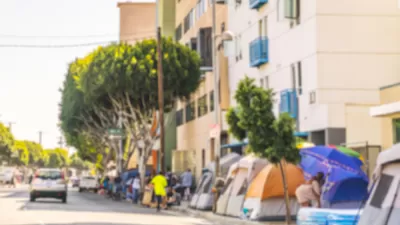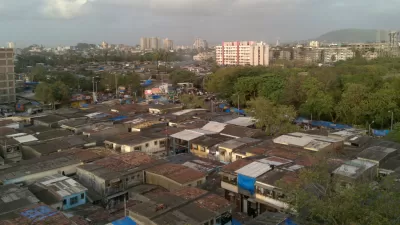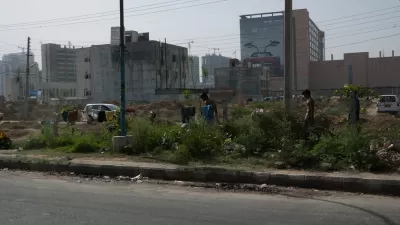Many people have argued that global cities can take lessons from informal communities like Dharavi and the favelas of Brazil. Designers Pavlina Ilieva and Kuo Pao Lian have created a new framework for city development based on these informal cities.
They call their idea Self-Generative Communities, and offer step-by-step instructions on how to learn from informal cities and improve the urban areas we already have.
"We propose living on the grid of a new urban fabric that distributes self-generated resources-food, learning, skills, human talent, and labor-and creates natural connections among inhabitants and nature. This way of living draws from the lessons that the world's poorest inhabitants have to give us without romanticizing the difficult and unfortunate aspects of impoverishment. The SGC is a portrait of humanity not at its poorest, but at its most resourceful, responsible, and aware of its surroundings. The objective of the SGC is to realize homegrown socioeconomic sustainability by investing in the proper handling of the natural environment and technology."
FULL STORY: Learning from Informal Cities, Building for Communities

Maui's Vacation Rental Debate Turns Ugly
Verbal attacks, misinformation campaigns and fistfights plague a high-stakes debate to convert thousands of vacation rentals into long-term housing.

Planetizen Federal Action Tracker
A weekly monitor of how Trump’s orders and actions are impacting planners and planning in America.

In Urban Planning, AI Prompting Could be the New Design Thinking
Creativity has long been key to great urban design. What if we see AI as our new creative partner?

King County Supportive Housing Program Offers Hope for Unhoused Residents
The county is taking a ‘Housing First’ approach that prioritizes getting people into housing, then offering wraparound supportive services.

Researchers Use AI to Get Clearer Picture of US Housing
Analysts are using artificial intelligence to supercharge their research by allowing them to comb through data faster. Though these AI tools can be error prone, they save time and housing researchers are optimistic about the future.

Making Shared Micromobility More Inclusive
Cities and shared mobility system operators can do more to include people with disabilities in planning and operations, per a new report.
Urban Design for Planners 1: Software Tools
This six-course series explores essential urban design concepts using open source software and equips planners with the tools they need to participate fully in the urban design process.
Planning for Universal Design
Learn the tools for implementing Universal Design in planning regulations.
planning NEXT
Appalachian Highlands Housing Partners
Mpact (founded as Rail~Volution)
City of Camden Redevelopment Agency
City of Astoria
City of Portland
City of Laramie





























